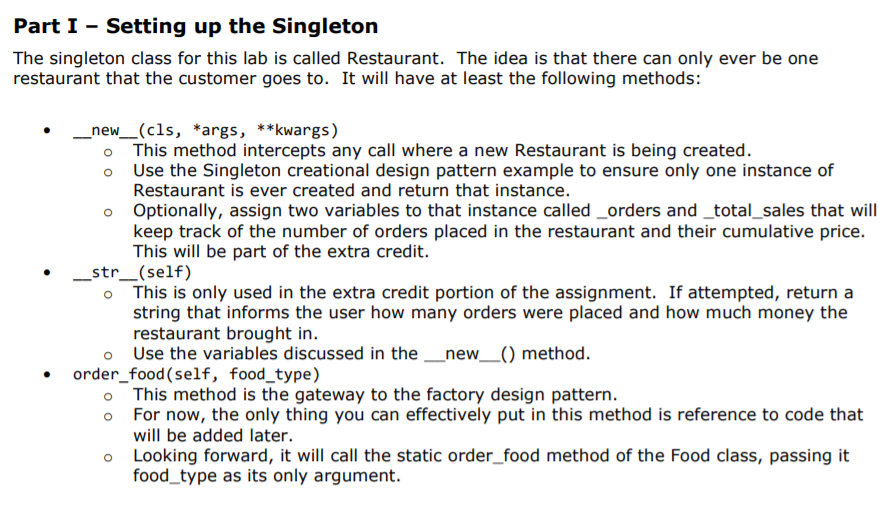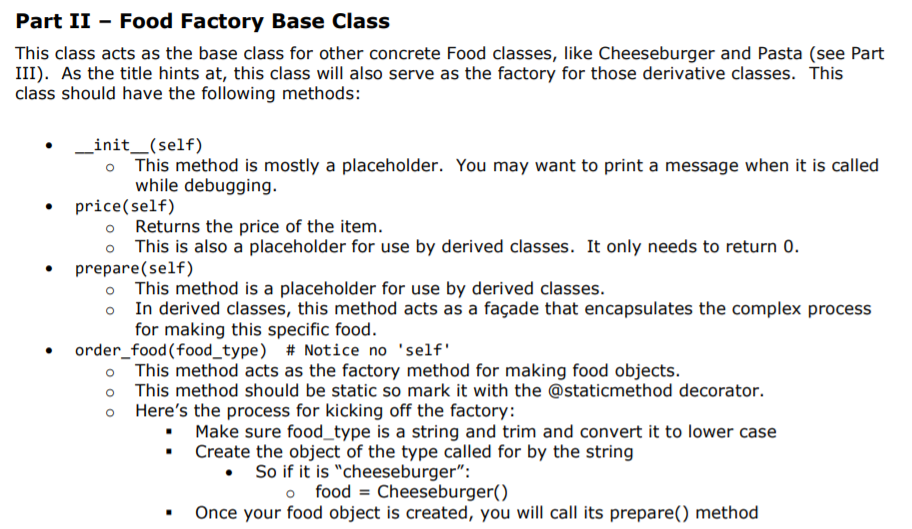Python - I am not sure if I am doing this right. I am trying to build a Food Factory Base Class. See my script
Python - I am not sure if I am doing this right. I am trying to build a Food Factory Base Class. See my script below and the screen shot of the output. I can't see what I am doing wrong. I have yellow highlighted the areas in the assignment that I am confused about. Any help is truly appreciated.



SCRIPT:
#stub function to order food def order_food_stub(food_type): return 50
#restaurant class class Restaurant(object): #instance object for singleton _instance = None #new method for making call singleton and initiliazing class vars def __new__(cls, *args, **kwargs): #making singleton if cls._instance is None: cls._instance = super(Restaurant, cls).__new__(cls) #init class vars cls._orders = 0 cls._total_sales = 0 return cls._instance #to string method def __str__(self): msg = str(self._orders)+" total orders that amount to $"+str(self._total_sales) return msg
#order method def order_food(self, food_type): #increment count and price self._orders += 1 #one way of calling the method #Food().order_food(food_type) self._total_sales += order_food_stub(food_type) #functionality test res = Restaurant() res.order_food("sushi") print(res)
#singleton test res2 = Restaurant() res2.order_food("fries") print(res2)
# class Cheeseburger class Cheeseburger: def __init__(self): pass
def prepare(self): print("preparing CheeseBurger")
class Food: # updated method @staticmethod def order_food(food_type): if type(food_type) == str: food_type = food_type.lower() if food_type == "cheeseburger": food = Cheeseburger() food.prepare() print(food_type)
def __init__(self): print("it is debugging.")
def price(self): # place holder for derived classes return 0
def prepare(self): # place holder for derived classes pass
# tested code rs = Restaurant() rs.order_food('cheeseburger')
OUTPUT:

Step by Step Solution
There are 3 Steps involved in it
Step: 1

See step-by-step solutions with expert insights and AI powered tools for academic success
Step: 2

Step: 3

Ace Your Homework with AI
Get the answers you need in no time with our AI-driven, step-by-step assistance
Get Started


